05 November 2024
Join Our Lecture on “How Is a Human-Rights Approach to Disability Applied in Higher Education?”
How can higher education use a human-rights approach to better support students with disabilities? J... Read More
The Australia Awards are prestigious, transformational scholarships and short courses offered to emerging leaders for study, research and professional development in Australia

14 Dec 2020
 Workshop on Signs of Early Pregnancy and Self-assessment in Pregnancy for Mothers to Help Addressing Pregnancy-related Complications and Reducing Maternal Deaths and Miscariege in West Nusa Tenggara
Workshop on Signs of Early Pregnancy and Self-assessment in Pregnancy for Mothers to Help Addressing Pregnancy-related Complications and Reducing Maternal Deaths and Miscariege in West Nusa Tenggara
Project leader: Ms. Cut Warnaini
Level of education and university: Master, The University of Adelaide
Collaborating Organisations: Faculty of Medicine (Universitas Mataram); local chapter of the Indonesian Doctors Association (IDI)
Project Location: Nusa Tenggara Barat
Activity Type: Training, workshop or seminar
Sector: Public health, Health management, Maternal and child health
Project Rationale:
The COVID-19 pandemic has had major impacts on life in general and is acknowledged as the most common cause of death by infectious disease in 2020, particularly for people with underlying health conditions. It has also played a role, directly or indirectly, in causing deterioration of people’s health.
The field of mothers and babies’ health has been one of the goals aimed by the Millenium Development Goal (MDG). Much progress had been made to reduce maternal mortality but despite these efforts, the world still fell short of the MDG target of a 75% reduction in the global Maternal Mortality Rate (MMR) by 2015. In February 2015, the WHO published “Strategies toward ending preventable maternal mortality (EPMM)” (EPMM Strategies), a direction-setting report outlining global targets and strategies for reducing the maternal mortality under the SDGs. Moreover, Indonesia has among the highest MMR in South East Asian nations, with West Nusa Tenggara amongst provinces that have the highest MMR in Indonesia, along with East Nusa Tenggara, Papua, and West Papua. Thus, better policy should be made and more research should be done in the field of mothers and babies’ health to overcome the issue.
Since the beginning of the COVID-19 pandemic, there has been a substantial change in people’s health behaviour. Numbers of people avoiding interaction with healthcare workers and avoiding going to healthcare centers are rising. Their fear of contracting COVID-19 is understandable and somehow predictable, even more so from those who come from rural areas and a background of low education. Yet, those marginalised people are also those who have relatively low health status and are prone to delay treatment because of financial issues, among other reasons.
Project Beneficiaries:
Mothers from the villages selected to attend the workshop.
Priority Development Area:
Human development for a productive and healthy society
Link with Australian organisation: -
Share this article on:
 Related Project Profiles
Related Project ProfilesThis website uses cookies to improve your website experience. We may also use cookies to analyse website data so that we can improve our online services. To find out more visit our privacy policy.

